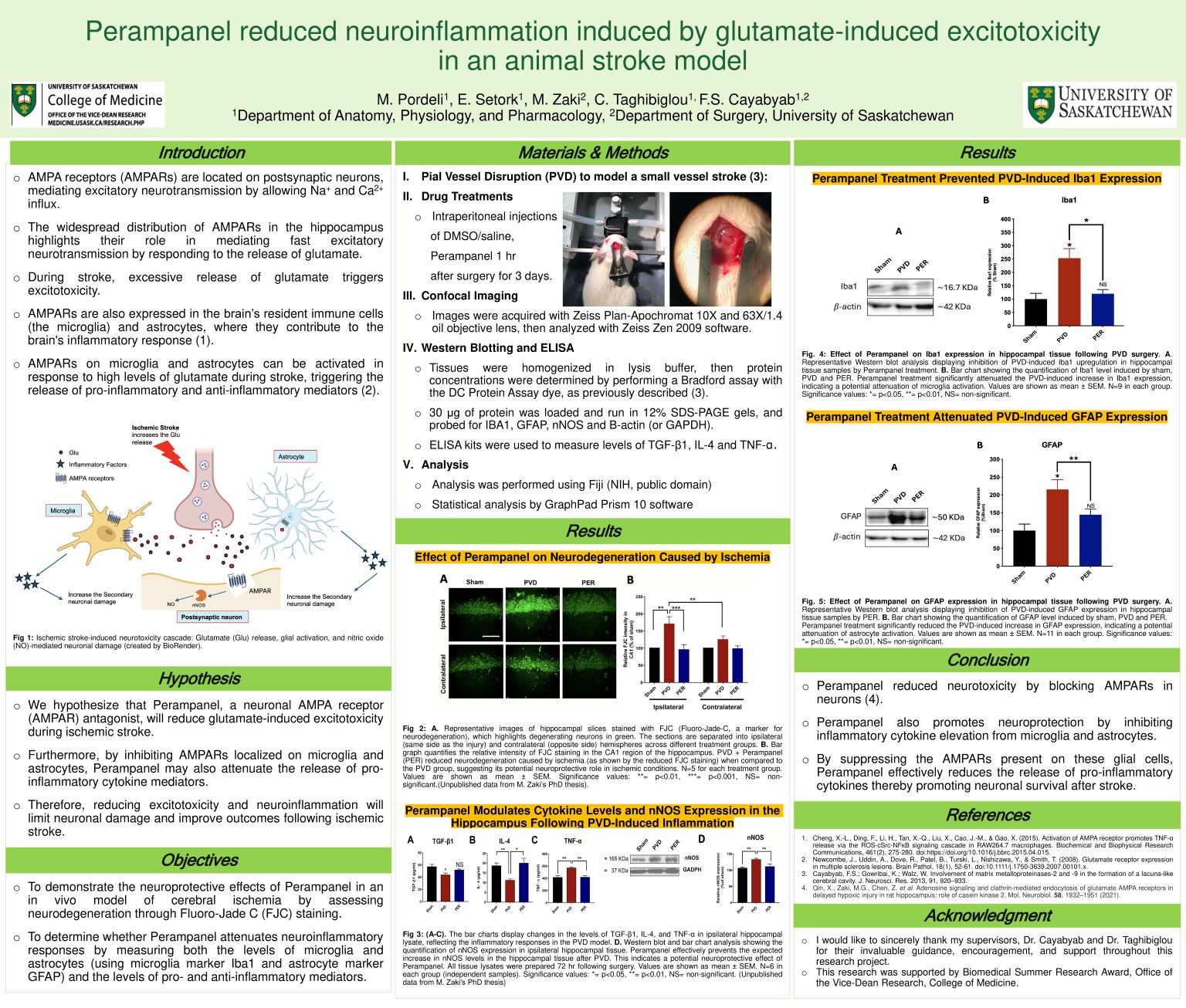
Perampanel as a Neuroprotective Agent: Investigating Its Potential in Cerebral Ischemia Through AMPAR Blockade
Mahboubeh Pordeli
AMPA receptors (AMPARs) play a critical role in synaptic plasticity and neurotransmission but are also implicated in neuroinflammation. AMPARs on microglia and astrocytes contribute to the release of pro-inflammatory cytokines during excitotoxic events, such as ischemic stroke. In this study, we explored the neuroprotective effects of Perampanel, an AMPAR antagonist, in a pial vessel disruption (PVD) model of cerebral ischemia. We hypothesize that Perampanel reduces glutamate-induced excitotoxicity by blocking AMPARs on neurons and modulates neuroinflammation by inhibiting AMPARs on glial cells.
Our results demonstrate that Perampanel significantly reduces neurodegeneration, as evidenced by reduced Fluoro-Jade C (FJC) staining. Moreover, Perampanel attenuates microglia and astrocyte activation, as reflected by reduced Iba1 and GFAP expression and reduced pro-inflammatory mediators. These findings suggest that Perampanel's neuroprotective effects are partly mediated by the suppression of pro-inflammatory cytokines, likely derived from activated glial cells.
In conclusion, Perampanel mitigates both neuronal excitotoxicity and neuroinflammation, providing a potential therapeutic approach for limiting neuronal damage and improving outcomes in ischemic stroke.
